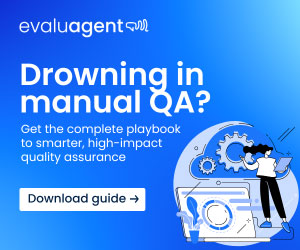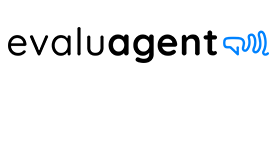The combination of a time-strapped work week and the lingering effects of the Covid-19 pandemic has caused consumers to rely on call centres for support.
Critically, this has placed them at the centre of all businesses’ customer care services. That’s why having a call centre agent who is an efficient call handler and is effective at handling consumer issues is vital.
You need agents who can connect with customers and provide a personable, informative and convenient service that customers can rely on to answer questions accurately, address concerns and resolve issues.
So, how does a business do this successfully and cost-effectively? Call centres before the pandemic involved significant rent and technology overheads.
However, now that more and more companies are utilising remote working and cloud-based software to route calls and manage data, teams are not on-site, presenting an entirely new problem regarding monitoring, feedback and training.
Determining your team’s and individual employees’ strengths and weaknesses is critical in all jobs. If you can identify problems early, you can accurately target and support them and ultimately improve your business’s overall efficiency.
In a call centre, you need conversation data that encompasses your customers’ experience by providing 100% coverage of every conversation, which can turn into actionable feedback and targeted training and support.
With thousands of calls made every day, accessing, monitoring, and extracting that information in a usable format is valuable and, when used accurately, can pinpoint critical areas for development that will benefit your customers and improve quality assurance. In essence, well-trained call agents make for an excellent customer experience.
What Is Call Centre Data, and How to Analyse It?
Call centre data comes from every ticket and customer conversation, whether over the phone, email or instant chat.
The most common metrics for data collection are call handling time, call volume, customer satisfaction and hold time, which can be analysed, compared and used to create a new and improved business strategy.
In the past, collecting data would have involved manually listening to individual calls, prioritising subjective opinion and bias whilst costing plenty of time and money.
Nowadays, businesses prefer AI to generate data as it is efficient, low-cost and offers the best visibility for their teams.
Our platform analyses call centre data to provide insights into your call agents’ customer service quality. Using AI-driven technology, the platform records, transcribes, evaluates and prioritises tickets, calls, emails, and live chats so that your QA team can gain in-depth insights into the reason for contact, overall customer experience, compliance with business processes and the performance of your call agents.
The system automatically analyses every call against personalised scorecards, flagging high-risk conversations for further deep-dives by QA analysts – maximising visibility by creating an image of your business at scale without having to listen to every individual call.
Analysing Call Centre Data Can Offer Employee Insights
We discussed earlier that data metrics typically focus on quantifiable information like call or hold time for call centres, which can be helpful to a certain extent, but ultimately only scratches the surface of what you could know.
All call centres vary in size and use various communication channels to speak to their customers. According to Microsoft Dynamics, 49% of consumers use on average three to five different communication channels to contact customer service.
You can collect and analyse data from all of them, generating lots of valuable data on your call centre’s performance, efficacy and efficiency.
Creating call centre conversation data using an AI automated platform provides your QA team with a unique opportunity to deep-dive beyond the statistics for a real-time understanding of call agents’ performance, process compliance and overall customer satisfaction.
It’s an AI-powered resource tool that supports your analysts in creating targeted improvement strategies that uplift your call agents through relevant training and improves customer experience through reduced inefficiencies. It’ll help them to answer questions like:
- Are your agents using the correct greeting?
- Are they complying with business processes?
- Are they correctly describing a new product feature?
- Have they highlighted a policy change?
- Are they upholding policy promises?
- What are the reasons for customer contact?
- Is the customer satisfied?
If you can understand how your call agents’ performance affected your customer’s experience, you can understand how best to support them from making a repeat mistake.
This leads to improved compliance through targeted training and individualised and relevant feedback, creating a better customer experience.
Conversation Intelligence to Automate QA
Companies that use a manual QA approach are unwittingly wasting time and money whilst only superficially skimming the surface of the data available.
Currently, most businesses can only monitor 5% of conversations resulting in a limited sample, missed insight and unreliable performance indicators subjected to human error.
An AI-powered conversation intelligence is there to support, not replace, your QA team by providing an accessible, automated system that deepens their insight through 100% conversation coverage of every contact channel.
From tickets to live chats to calls to emails, our system automatically redacts sensitive information, transcribes the conversation accurately using Word Boost and generates a customisable scorecard based on your business’s unique success criteria.
For example, you’ve introduced a new product and want to assess that your agents have correctly relayed information about its features to your customers; our AI conversation intelligence detects if this has been done correctly and assigns a score.
All scores are then compiled automatically alongside manual QA results, feedback and customer surveys for an easy-to-read picture of performance that can turn into in-depth reports that track data over time.
Additionally, scorecards inform a call agent’s leaderboard, inspiring a little friendly competition amongst your call-centre team.
If any conversations are flagged as high-risk by our system for compliance or process adherence issues, it sends an automated alert to your analysts so that they can add additional individualised feedback as part of manual evaluations.
In the meantime, the system will use its Smart Trigger to close the loop through automatically assigned relevant training courses for identified knowledge gaps and group coaching sessions to tackle consistent issues.
For example, an agent has misinformed a customer about a feature of company policy regarding refunds, ultimately resulting in an escalated complaint.
Rather than remaining unaware until that first customer complaint, by which point they’ve advised hundreds of other consumers, our conversation intelligence will catch it the first time using its auto-fail alert feature to trigger manual feedback from analysts and targeted training on policy, preventing future issues.
In short, conversation intelligence automates QA, efficiently interpreting, analysing and operationalising your insights into an accessible format that provides actionable feedback for your call agents—allowing your analysts to focus on providing targeted support where it is most needed and generating data-driven improvement strategies.
Call-Centre Metrics
Go beyond the typical performance metrics that are used to gauge the effectiveness of a call centre team to find the “why” behind inefficiencies and treat previously hidden problems.
When it comes to Quality Assurance, it is time to dump the spreadsheets, data silos and manual admin processes using a streamlined, AI-powered platform to enhance agent and evaluator performance and improve the customer experience.
Improved QA Feedback and Evaluation Cycles
If the call centre is the body, your agents are the heart. Their performance, productivity and understanding of policy, products, processes and customer experience are integral to a profitable business and optimised consumer experience.
Without proper support, they will likely continue to fall short, reduce sales, remain inefficient and cost money invested in solutions that don’t work. That’s why having an effective feedback and evaluation cycle is essential; with Evaluagent, it’s easy.
For a real-life example of our platform’s optimised feedback and evaluation systems, look at our work with The Share Centre, a Financial Tech organisation dedicated to making buying and selling shares easier for its customers.
At the time, they’d grown to 80 agents, and their new Head of QA wanted to ditch the manual processes holding them back in exchange for an AI-powered conversation intelligence platform that could speed up, automate and increase efficiency for their evaluation and feedback cycle.
We began working with them after a three-product comparison test period in which we beat the competition when their company saw a 285% increase in productivity without the need to expand their team.
The Share Centre ultimately benefited from a reduced audit time from 24 minutes to just six minutes and 17 seconds, and within six months, they delivered 1,600 examples of quality feedback to their agents, which in turn has led to a 16% pass rate increase that is continuing to trend upwards.
Engaged, Informed Agents = a High-Quality Customer Experience
Customer satisfaction is the difference between customer recommendations or complaints for your business; they can make or break it.
Currently, the industry standard for CSAT scores sits at 70-80%. Typically customers are put off by issues such as wait times, being transferred, re-explaining problems, repeated calls and time from the first call to resolution.
According to Zendesk, “customer patience is dwindling”, and 66% of customers are less patient with businesses that are slow to make improvements.
Additionally, 88% of consumers agreed in a survey by Salesforce that the contact centre experience is just as necessary as the service they’re providing.
That’s why our motto is “great ex=great cx”; a great employee experience makes for a great customer experience. Ensuring your agents feel well-informed, supported, engaged and motivated is integral to high-quality customer experiences.
When we began working with Pinnacle, an online betting and gambling company, they handled 25,000 interactions monthly via live chat and email.
Their business was growing quickly, and their goal was to provide a customer-focused service that kept them safe and well-informed.
However, their clunky, out-of-date systems made it hard to keep track of data and implement meaningful change. They identified their challenges as inefficient manual feedback and evaluation cycles, limited agent engagement, disconnected workflows and lack of support, feedback and training.
However, by introducing the system, they could support front-line agents through their practical assessment, feedback and coaching cycle that pinpointed problems and closed the circle efficiently.
In particular, they benefited from our sentiment analysis tool, which ensured balanced, positive feedback across the board.
Pinnacle’s leadership team also benefited from greater oversight, with repaired workflows increasing visibility and accountability for managers.
Following their success, they’ve used systems to create their data-driven recognition and reward programme based on our gamified leaderboards.
The result: a consistent 85% Quality Score. Pinnacle’s investment of time and support for their agents resulted in an overall improved customer experience, personal investment, and understanding of the value of Quality Assurance.
Customer-Focused Efficiency
Call Initiation and centre operations metrics are quantifiable and, therefore, easier to track. They record how your customers interact with your business and performance over time, directly impacting customer satisfaction and agent productivity.
Customer experience vs call handling and hold time is a balancing act that few companies master alone. You need customers to feel valued by personable agents whilst simultaneously ensuring you are utilising that same employee effectively to combat lengthy on-hold customer queues. A high abandonment rate means increased customer complaints.
We’ve been working with Atos, a global business process outsourcer that boasts 110,000 employees, since 2012 when they came to us with a problem: how to retain a long-standing client whilst driving efficiency savings that didn’t impact client and customer satisfaction?
A complex issue that we handled through bespoke consultancy and AI-powered conversation intelligence that allowed Atos to train their agents to be efficient whilst still allowing customers and clients to feel heard.
During our trial period of just three months, we reduced their average handle time by 10% and increased their CSAT score by 3% simultaneously in three of their contact centres.
The software allowed them to listen in on calls, provide feedback and give targeted support and interventions to promote suitable quality measures for their business.
The Advantages of Call Centre Analytics
Call centre analytics are the foundation of any effective call centre business strategy. The numbers and their context are beneficial, and their advantages are numerous. Utilising them effectively can help your business:
- Improve customer satisfaction
- Improve the overall quality of your service
- Improve flexibility to meet customers’ needs
- Improve efficiency and efficacy
- Create a data-driven assessment, feedback and training cycle
- Ensure consistency
- Empower and ensure fairness for your agents
- Increase sales
- Boost front-line agent performance
- Ensure visibility and accountability for your employees
- Create a cohesive vision for your business
This blog post has been re-published by kind permission of EvaluAgent – View the Original Article
For more information about EvaluAgent - visit the EvaluAgent Website
Call Centre Helper is not responsible for the content of these guest blog posts. The opinions expressed in this article are those of the author, and do not necessarily reflect those of Call Centre Helper.
Author: EvaluAgent
Published On: 24th Mar 2023
Read more about - Guest Blogs, EvaluAgent






 EvaluAgent provide software and services that help contact centres engage and motivate their staff to deliver great customer experiences.
EvaluAgent provide software and services that help contact centres engage and motivate their staff to deliver great customer experiences. 








